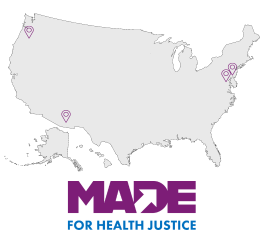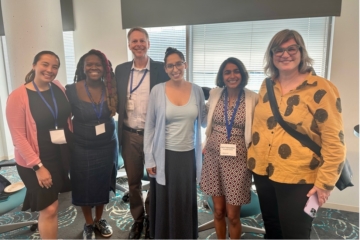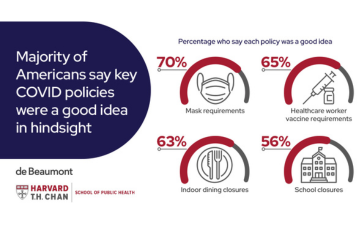
MADE for Health Justice seeks to accelerate the development of health-focused local data ecosystems that center principles of anti-racism, equity, justice, and community power. The initiative is made possible through a partnership between de Beaumont and the Robert Wood Johnson Foundation.
“Data are a powerful force that drives our health, whether we realize it or not,” said Jamila Porter, DrPH, MPH, principal investigator for MADE for Health Justice and chief of staff at de Beaumont. “To ensure data are a force for good, we need to create data ecosystems — dynamic collections of information that center and uplift the needs of the most marginalized. We’re excited to partner with communities across the nation that have taken on this challenge.”
A $5,000,000 investment will be made across four communities to support the planning, implementation, and sustainability of their data ecosystems over the next three years. The four communities are:
Baltimore City Youth Data Hub (Baltimore City, MD)
Partners: Baltimore City Health Department, Baltimore City Mayor’s Office, Baltimore City Public Schools, Baltimore’s Promise
The Baltimore City Youth Data Hub aims to improve educational attainment and economic mobility for Baltimore City youth, with a focus on Black, Indigenous, Latinx, and immigrant youth. The Baltimore City Youth Data Hub will use data to identify community needs, shift public and private resources, and drive recommendations for programs and policy.
Community Data for Health and Environmental Justice (Portland and Multnomah County, OR)
Partners: Coalition of Communities of Color, Multnomah County Health Department, Multnomah County Office of Sustainability, City of Portland Bureau of Planning and Sustainability
Community Data for Health and Environmental Justice aims to support and strengthen the resilience of marginalized and frontline communities in the context of climate impacts, including local climate and environmental justice planning and policy development. The partnership team will use its local data ecosystem to identify the needs of impacted communities, the barriers they face when seeking resources amid climate crises, and the investments necessary to uplift frontline communities in Portland and Multnomah County.
Data Justice for Pittsburgh’s Black Neighborhoods (Pittsburgh, PA)
Partners: Black Equity Coalition, Carnegie Mellon University Community Robotics, Education and Technology Empowerment (CREATE) Lab, City of Pittsburgh, The Forbes Funds, Gateway Medical Society, POISE Foundation, University of Pittsburgh Center for Health Equity, University of Pittsburgh Center for Social and Urban Research, Western Pennsylvania Regional Data Center (WPRDC), UrbanKind Institute
Data Justice for Pittsburgh’s Black Neighborhoods aims to help residents in Black communities that have been harmed by residential segregation and disinvestment in the City of Pittsburgh gain tools to improve the quality of housing and the built environment. The goal of Data Justice for Pittsburgh’s Black Neighborhoods is to ensure that members of the Black community have a meaningful participatory role in the design of public data systems that will help redress environmental injustices.
Promoting Indigenous Models of Assessment (PIMA) (Tucson and Pima County, AZ)
Partners: Partners In Health – United States, Pima County Health Department, Pima County Community & Workforce Development, Tucson Indian Center
Promoting Indigenous Models of Assessment (PIMA) aims to ensure that urban American Indians secure, retain, and advance in high-quality employment in Pima County, Arizona. The initiative seeks to create a more just employment environment for Pima County’s urban American Indian/Alaska Native community, breaking the cycle of intergenerational poverty and improving the community’s health and well-being.
“The communities participating in MADE for Health Justice have demonstrated a commitment to more equitable, community-driven data collection and use, and this initiative will allow them to take their work even further,” said Brian C. Castrucci, DrPH, president and CEO of de Beaumont. “We are excited for them to serve as models for creating local data ecosystems that serve everyone.”




